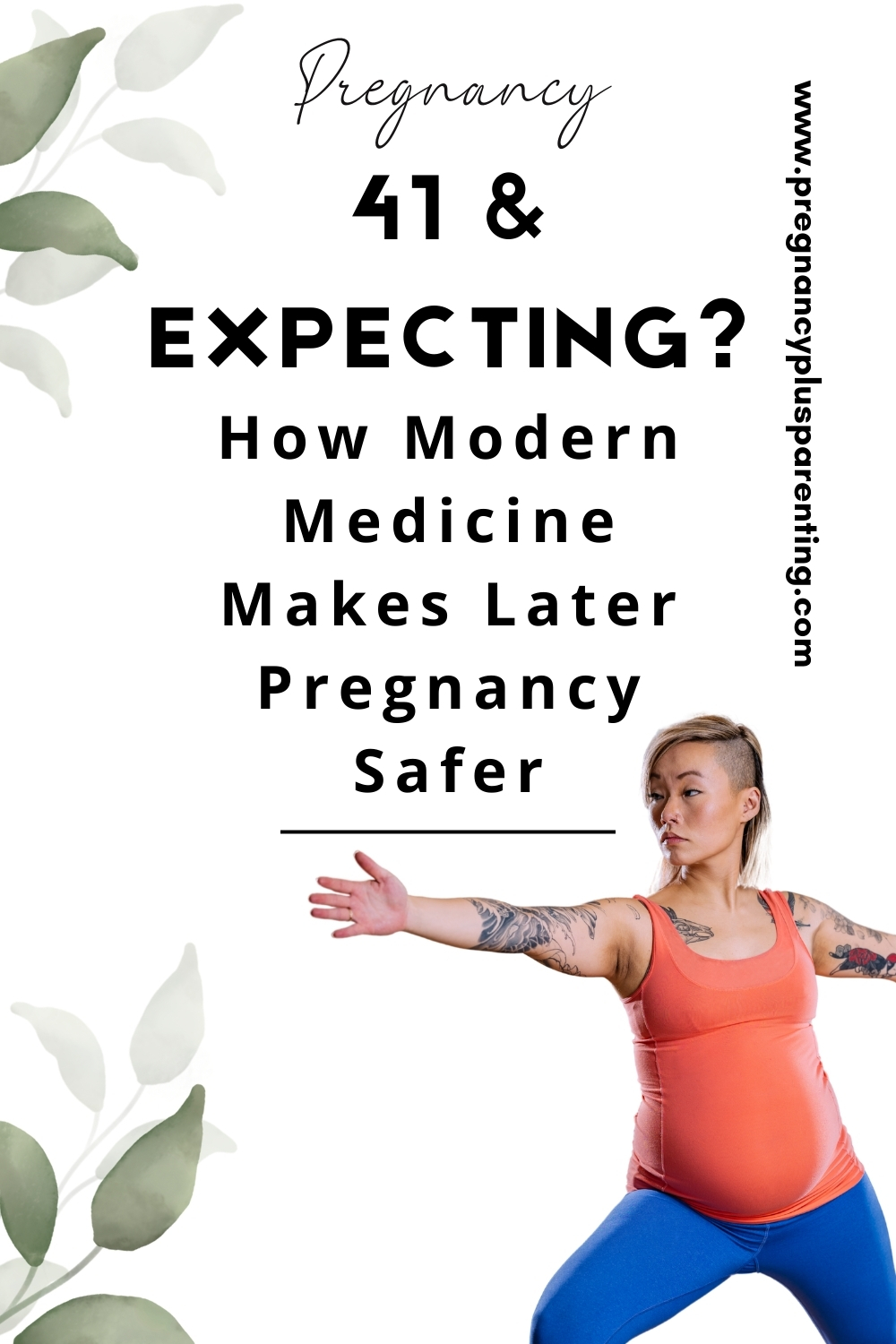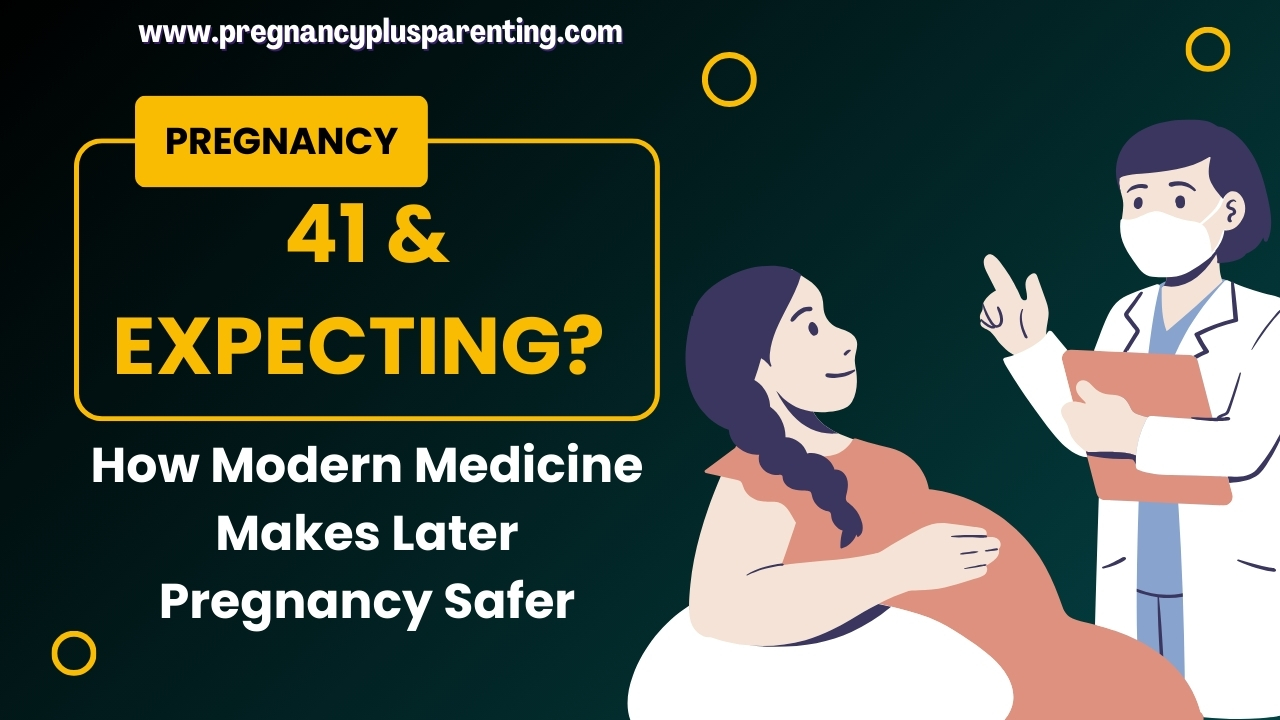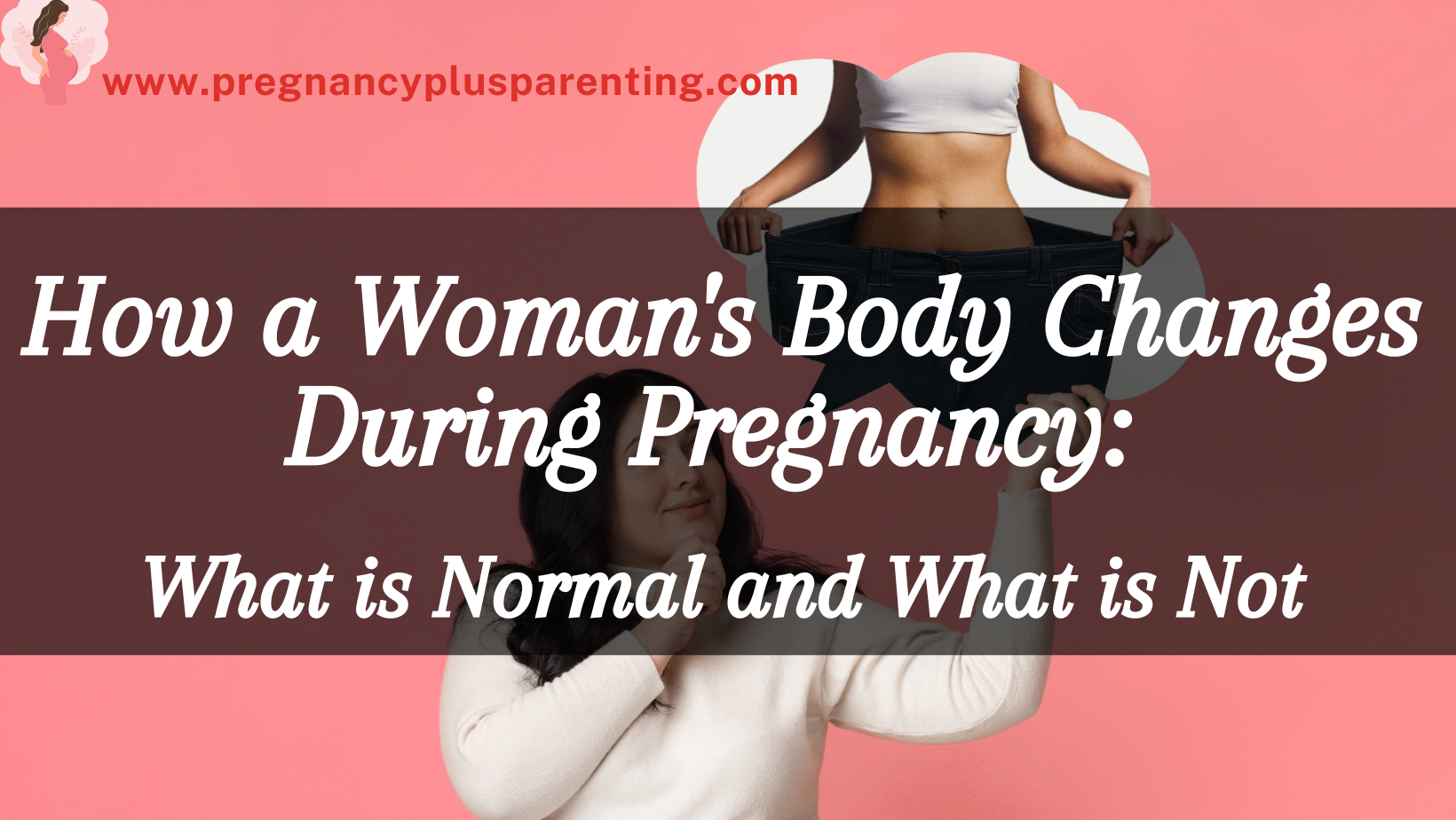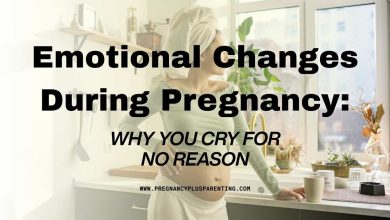41 & Expecting? How Modern Medicine Makes Later Pregnancy Safer
Are you over 40, have an unfulfilled desire to have children and are wondering how to get pregnant at 41?
It is no news that the age of first-time mothers is getting progressively later.
It is no longer uncommon for a woman aged 40 or over to have children .
It’s been said that thirties are the new forties. But some experts, gynecologists, and physicians are concerned about the trend toward older ages at first childbirth.
Others, on the other hand, seem to take the matter lightly and confirm the above saying.
This isn’t an easy situation for women in their forties who want to have children, even though you read media reports about celebrity mothers who become mothers in their 40s and even 50s.
And even if the social discourse is becoming increasingly more favorable towards them.
If a woman over 35 becomes pregnant, it is considered a high-risk pregnancy. Women who want to have children later in life often have questions:
How likely is it to get pregnant at 41? What do the statistics say? What experiences are there? What risks can be expected, and how can one cope with the fear?
In this article, I would like to help you get an idea of what your fertility situation is and what options there are for getting pregnant at 41.
No matter what some people may think, it is difficult in many ways for women to become pregnant or want to become pregnant when they are over 40.
Here you will find understanding and answers to your questions.
Can you still get pregnant at 41? Am I too old for a baby at 41?
Whether a woman can still become pregnant naturally at 41 is a very individual question.
Because every woman is different, the number of eggs also varies.
A woman’s fertility depends largely on how many eggs she still has in her ovaries and what their condition is.
This number is determined in the womb and steadily decreases over the years. Starting in the late 30s, the number shrinks significantly faster than, for example, in the 20s.
As we age, egg cells not only become fewer, but they also age.
In other words, they fail to mature or have certain defects that can lead to health problems and miscarriages.
How long does it take to get pregnant at 41?
You know that women in their mid-thirties usually get pregnant within a year if they have regular, unprotected sex, and you’re wondering how long you should try at 41?
On average, the chances of becoming pregnant naturally within a year at 41 are 30%.
Women over 40 often have to wait two, three or more years before they become pregnant.
However, if you want to have children and are over 40, you should talk to your gynecologist about your situation and options right at the start of family planning.
Pregnant at 41 ‒ Statistics
About 50 years ago, the average age of mothers at birth was about 23 to 24 years.
Today, however, the average age in Germany is already 35. Thus, the number of women giving birth later in life, over 40, has also increased and continues to rise.
Even though the chances of a natural pregnancy become increasingly smaller with increasing age, there are experts like Prof. Dr. Christian Breymann, head of gynecology and obstetrics in Zurich, who do not raise the alarm about this.
The oldest pregnant woman he cared for was 55 years old and, after overcoming complications and difficulties, gave birth to a healthy baby!
The statistics and averages should not unsettle you.
Ultimately, it is not the biological age itself that determines the chances of a late pregnancy, but the physical and mental state of the mother and father.
From the age of 40, first-time mothers in particular have an increased risk of miscarriage, stillbirth and premature birth.
High blood pressure, trisomy 21 (Down syndrome), 18 and 13, gestational diabetes and preeclampsia (poisoning during pregnancy) and complications with the placenta are also possible.
However, pre-existing medical conditions of the expectant mother are usually responsible for the problems mentioned.
Even though it has been proven that older mothers are more likely to experience cell division disorders and growth retardation and malformations in babies than younger mothers, the mother’s health plays the most important role.
If the mother has led a healthy lifestyle, has not smoked, consumed only a small amount of alcohol and has paid attention to a healthy diet, even a late pregnancy can proceed without complications.
Pregnant at 41 ‒ Probability
The good news is that at 41, the chances of getting pregnant are much better than in your mid-40s .
A study in the international journal “Fertility and Sterility” found that the 40-year-olds undergoing fertility treatment had a 25% chance of becoming pregnant with their own eggs.
However, spontaneously, i.e. without the assistance of reproductive medicine, the chances of 40-year-olds becoming pregnant through unprotected sex are only 2 to 7% per month.
From the age of 45, the probability drops to a fraction of 0.2%.
The good news is that thanks to artificial insemination, the mentioned 25% chance is actually high.
For comparison, it should be mentioned that women in their mid-20s to early 30s statistically do not have a greater chance of becoming pregnant naturally.
Reproductive medicine has developed several methods to help older women become pregnant using their own eggs. Egg donation, for example, is prohibited in Germany.
But with hormone administration, in vitro fertilization (IVF) or sperm injection (ICSI), late pregnancy is also possible in many cases.
So that you are not put off by these terms and get a first idea of what they mean, I will give you a brief explanation here:
In IVF, eggs are removed from women and fertilized with the future father’s sperm in a solution in a test tube. This method is therefore also called “in vitro,” which is Latin for “in a glass.”
In ICSI, however, unlike IVF, several thousand sperm are not brought to the egg cell, but only a selected one is injected directly into the egg cell.
The success rate of artificial insemination differs not only in the methods used.
Of course, the couple’s age and the quality of the cells play a significant role. On average, IVF and ICSI pave the way to the desired child in 25 to 45% of cases.
But even if a pregnancy is successful, there is unfortunately still an increased risk of miscarriage.
Pregnant at 41 ‒ Fear
Anyone who gets pregnant at 41, perhaps even naturally, often cannot really enjoy the pregnancy because of fear.
After all, there are so many risks that come with late motherhood.
Fear for the baby and fear of an impending caesarean section are spreading.
For women over 40 who become pregnant for the first time, birth by caesarean section is more common.
However, this is probably because they are automatically classified as having a high-risk pregnancy, even if the pregnancy is proceeding without complications.
Conception can also occur without complications and problems, quite contrary to what is often suggested.
The so-called baby scaremongering and the pressure on women to become pregnant as young as possible have been around for decades.
Unfortunately, the much-quoted statistics in the media are also intimidating.
Please be aware that there are not many conclusive studies regarding female fertility.
Furthermore, the percentages of risks are always average values that may have little to do with you personally…
Yes, some gynecologists and experts are sounding the alarm because it is becoming increasingly common in our society for women to have children even after the age of 40.
But there are also experts who have a different opinion and give the all-clear.
Take gynecologist Ralph Raben from Hamburg, for example. He understands that statistics have little meaning for individual women.
After all, nature knows no boundaries of lifespan and no magic numbers like 30, 35, 40 and 45.
The Hamburg gynecologist has treated many women who were pregnant at over 40 and therefore has practical experience with the phenomenon of late pregnancy.
He emphasizes that there are risks for all pregnant women, regardless of age, that something may go wrong.
However, older women today still have a good chance of giving birth to healthy children.
After all, most women in affluent societies don’t engage in physically demanding work and tend to have few children in their lifetime. Accordingly, they also generally have fewer pregnancies.
In addition, as we all know, life expectancy has increased. Many women pay attention to healthy eating and a healthy lifestyle.
And then not only reproductive medicine but also obstetric medicine developed and improved.
In addition, older pregnant women are more conscientious and usually do everything in their power to create the best conditions for the pregnancy and the baby.
This allows them to make numerous preparations and attend regular checkups. This allows risks and complications to be identified and avoided early.
To give you a more differentiated picture of the statistics, I will give you the example of a study from Boston University .
2820 women were examined during the period when they were trying to become pregnant.
It was found that 78% of women between the ages of 35 and 40 became pregnant within one year.
Between the ages of 20 and 34, the number of women who had a successful conception was only a few percent higher, at 84%.
I would like to make it clear that we overestimate the negative effect of biological age on the pregnancy and also on the baby.
No wonder, because we put a lot of trust in numbers because they give the impression of objectivity, but these do not necessarily apply to the individual.
If you look at them in a different light, you take away their power to intimidate.
Let’s look at reproductive medicine and its oft-quoted statistics: Through IVF, 42% of women under 35 have a child, while for women over 35, the success rate is only 27% and for women over 40, it is just 12%.
These are shocking figures! And these figures are often cited in the media and even in studies when discussing fertility with increasing age.
Younger women simply respond better to hormonal treatment before artificial insemination.
Doctors have to remove as many eggs as possible because some are destroyed during the fertilization process.
Please note that the figures from reproductive medicine are taken into account, even though only 1 to 2% of children in the USA and Germany, for example, are conceived and carried to term through artificial insemination.
Outside the test tube, however, there is a more complex reality that often eludes statistics.
Pregnant at 41 ‒ Experience
Nicole gave birth to a healthy daughter at the age of 42 and had no complications.
During the first of the three ultrasound examinations, her gynecologist said that she was heading for a high-risk birth and should consider a cesarean section.
Without much thought, she decided to find a new gynecologist. This wasn’t difficult, as she hadn’t been going for checkups often.
Fortunately, everything was always fine with her, so she didn’t worry about the health of her reproductive organs or her fertility.
Nicole was not surprised by the statement made by her gynecologist at the time.
The emphasis with which the media and doctors speak about high-risk pregnancies over the age of 35 is ultimately unavoidable.
When her mother found out about the pregnancy, she also said that it was almost a miracle.
Pregnant naturally at 41! At first, she looked at her daughter as if she’d seen a ghost, she was so surprised by the pregnancy announcement .
Nicole is a business journalist and in her 20s and 30s she invested a lot of time and thought into her career.
She didn’t want to give up or limit her career dream just because society, doctors and the media suggested that she was making a mistake.
She recalls that over the years she developed a strong resentment toward having children. She felt blackmailed.
As it turned out, it wasn’t the biological clock that was to blame, but the environment. The intimidating numbers. The pressure of scaremongering.
But Nicole didn’t want to let that get her down.
She couldn’t imagine having children with the partners she was with anyway. She struggled to settle down until her late thirties.
She admits that she often thought about motherhood. Despite her defiance and resistance, she was occasionally overcome by the fear that her attitude was a big mistake.
So she calmed herself down with the idea of adopting a child.
Artificial insemination is also said to be less promising with increasing age.
The fact that fertility was viewed so negatively in many places made her angry at the time.
Today, the 45-year-old mother of a healthy and happy daughter sees things a little differently.
It was only during her pregnancy that she gained her first insights into all the possible complications and problems that women with unfulfilled desire to have children and with truly high-risk pregnancies face.
She had also seriously underestimated the stresses of pregnancy and especially the postpartum period.
Accustomed to always having everything under control, she had to learn the hard way to change her expectations of herself, life and everyday life.
During her postpartum recovery, she experienced postnatal depression.
Thanks to her partner, who persuaded her to seek professional help, she was over the hump in less than a year.
Nicole is sure that she will stay with the father of her child.
The joy of late motherhood simply feels good to her. She would never put herself through a separation from her partner with a child .
Her previous relationships weren’t right, and if she had given in to the pressure of aging, she would be in a very difficult situation today with a child. She’s absolutely certain of that.
But Nicole is also aware that being an older mother is nothing unusual in a big city like Hamburg.
She also knows that in other places, women who have children at an advanced age are unfortunately treated with almost hostility.
That’s why she thinks it’s important that the media adopt a different tone.
And that older mothers are not portrayed as irresponsible freaks who act in a morally questionable manner.
These prejudices must be eliminated.
Final thoughts
The age of women when they have their first child is rising inexorably.
It does not matter why women decide to become mothers only as they get older.
For several decades, the media has been putting great pressure on people not to put off family planning, using warning expert voices and statistical figures.
Fertility begins to decline in your late 30s, and by your early 40s, getting pregnant naturally seems like a miracle. And in many cases, even reproductive medicine doesn’t work alongside all the home remedies like chasteberry.
But this bad news is the result of attitudes and views.
We trust numbers and consider them objective. But numbers and studies can also be viewed from a different perspective.
Before you let this drive you crazy, it’s a good idea to take a closer look at the studies cited: When were they conducted? Who and how many people were studied? Under what circumstances?
In this article, I pointed out that frequently cited figures often come from reproductive medicine. This creates a limited picture of a complex reality.
In general, these figures fail to take into account the fact that life expectancy is higher today, that women generally don’t engage in physically demanding work, and that they lead healthy lives. This wasn’t always the case.
If you have an unfulfilled desire to have children at 41 or have become pregnant and are now dealing with anxiety, please remember that there are many women who have given birth to healthy children at and over 40.
And please find a gynecologist or specialist who will treat you with understanding and with whom you feel comfortable. Yoga during pregnancy, for example, can also help with anxiety.
No one will deny that as we age, our eggs age and our fertility decreases.
And it’s important to be aware of opportunities and risks. But negative attitudes don’t help anyone.
I hope you get a lot of support from those around you and don’t let your head hang down.







